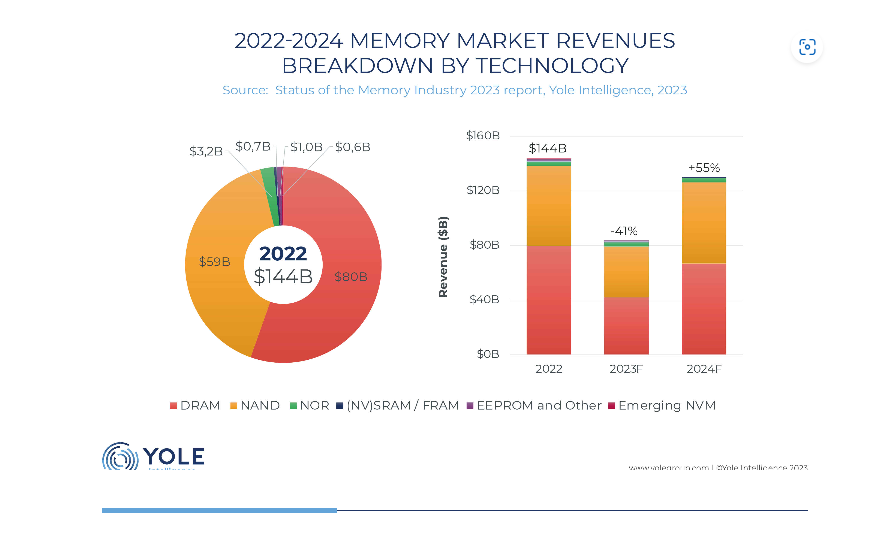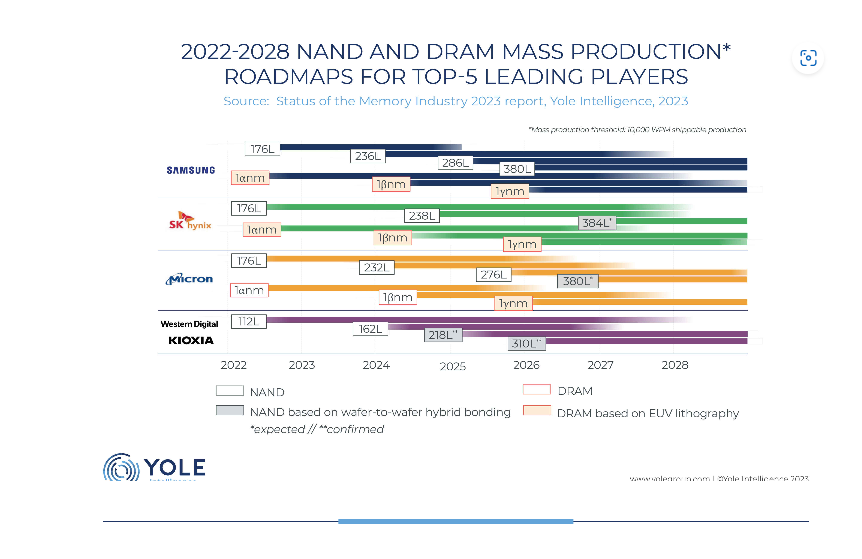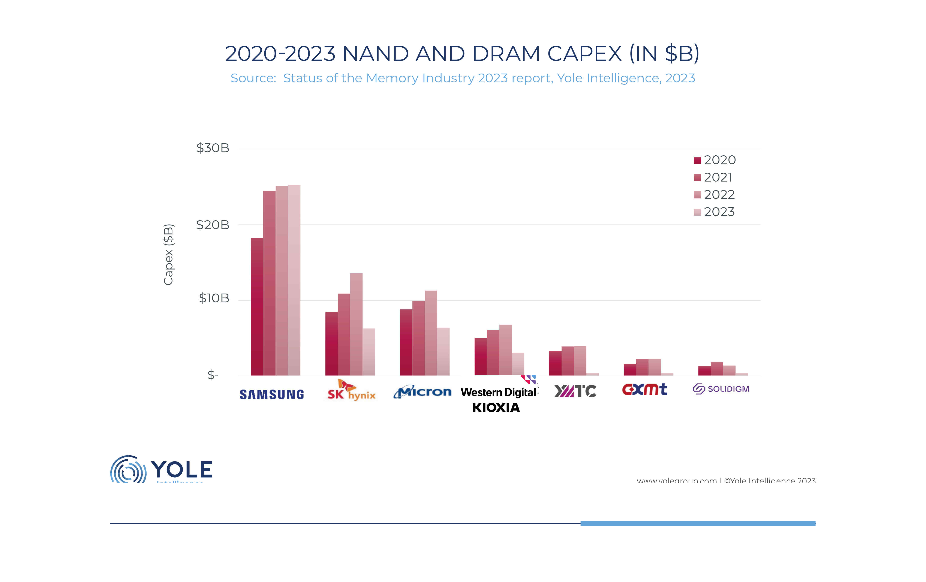China’s memory ambition has not diminished
Over the past several quarters, the memory markets have faced the most dramatic downturn of the last 15 years.
DRAM and NAND prices have fallen 57% and 55%, respectively, since Q3-2021. The results for the full year 2022 were as follows: DRAM and NAND revenues decreased to ~$79.7 billion (-15% YoY) and ~$58.7 billion (-12% YoY), respectively; NOR flash declined 8% YoY to $3.2 billion.
Simone Bertolazzi, Ph.D.,Principal Technology and Market Analyst, Memory, at Yole Intelligence, comments: “The most severe drop started in the final weeks of Q2-2022 when a perfect storm of demand-side developments including global conflicts, high inflation, China COVID-19 lockdowns, crashed into the memory markets.”
Production cuts have set up suppliers to reach a market balance by the end of 2023. However, the financial losses incurred so far have been massive, and a recovery time longer than usual will be needed before suppliers increase their investments again. As such, 2024 and 2025 will be marked by undersupply and climbing prices, and revenues are expected to soar: after declining to $42 billion for DRAM (-47% YoY) and $37 billion for NAND (-37% YoY) in 2023, combined memory revenues are expected to grow to a new record-high of over $200 billion by 2025.
In this context, Yole Intelligence releases its annual technology and market report: ‘Status of the Memory Industry 2023.’ In this 2023 edition, the market research and strategy consulting company provides an in-depth analysis with a focus on hybrid bonding for next-generation 3D NAND, DRAM, and HBM technologies. The memory team updates on the challenges and prospects for the transition from planar to monolithic 3D DRAM. A detailed 2022 financial analysis of IDM memory companies, including Samsung, SK hynix, Kioxia, Western Digital, Micron, and Solidigm, is also supplied.
In addition, Yole Intelligence‘s analysts deliver an update on the Chinese memory business: China’s reactions to the October-2022 US export controls, technology roadmaps for YMTC and CXMT, recent investments, and players’ dynamics.

From a Chinese perspective and due to the commercial restrictions set in October 2022 by the US DoC, the outlook for the ramp-up of memory production has become uncertain, and combined wafer capacities for both leading memory companies, YMTC and CXMT, are likely to be limited to ~180kWpm in the next five years.
China has reacted promptly to the restrictions. Chinese memory companies, supported by the Chinese government, re-aligned their strategy.
Since Q1-2023, YMTC has considerably intensified its efforts to work with Chinese equipment vendors – among which is Naura Technology – through a not-so-visible project code-named “Wudangshan” and received funding – of the order of $7 billion – from its state-backed investors.
A Bloomberg article published on 20 April 2023 introduced the rumour that CXMT is seeking an IPO at a valuation of more than $14 billion. For a six-year-old company, this is an astonishing figure, but this should be put in the context of the global memory industry, where memory capital expenditures by international suppliers can easily exceed single-digit billion-dollar amounts over a two-year period.
“Although the future of China’s memory industry remains uncertain, what is clear is that memory will continue to be a strategic priority for the Chinese semiconductor ecosystem,” asserts Simone Bertolazzi. “China will do everything possible to keep their workhorse memory companies, YMTC and CXMT, alive and running.”
Yole Intelligence has been following the industry for a long time and updates its analyses daily with regular interactions with leading memory companies. Yole invites you to follow the technologies, related devices, applications, and markets with: YMTC 232-layer 3D NAND memory: an unexpected technological breakthrough – The chronicles by Yole SystemPlus (see the Yole website).
Article written by Simone Bertolazzi and Belinda Dube from Yole SystemPlus, also part of Yole Group.












